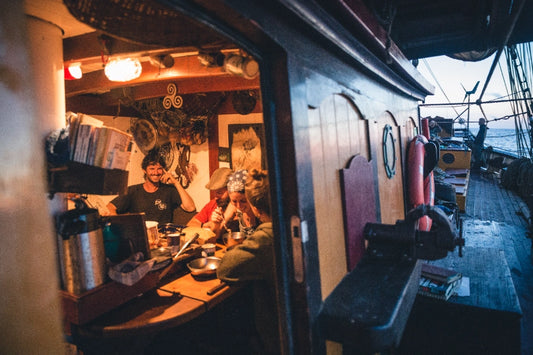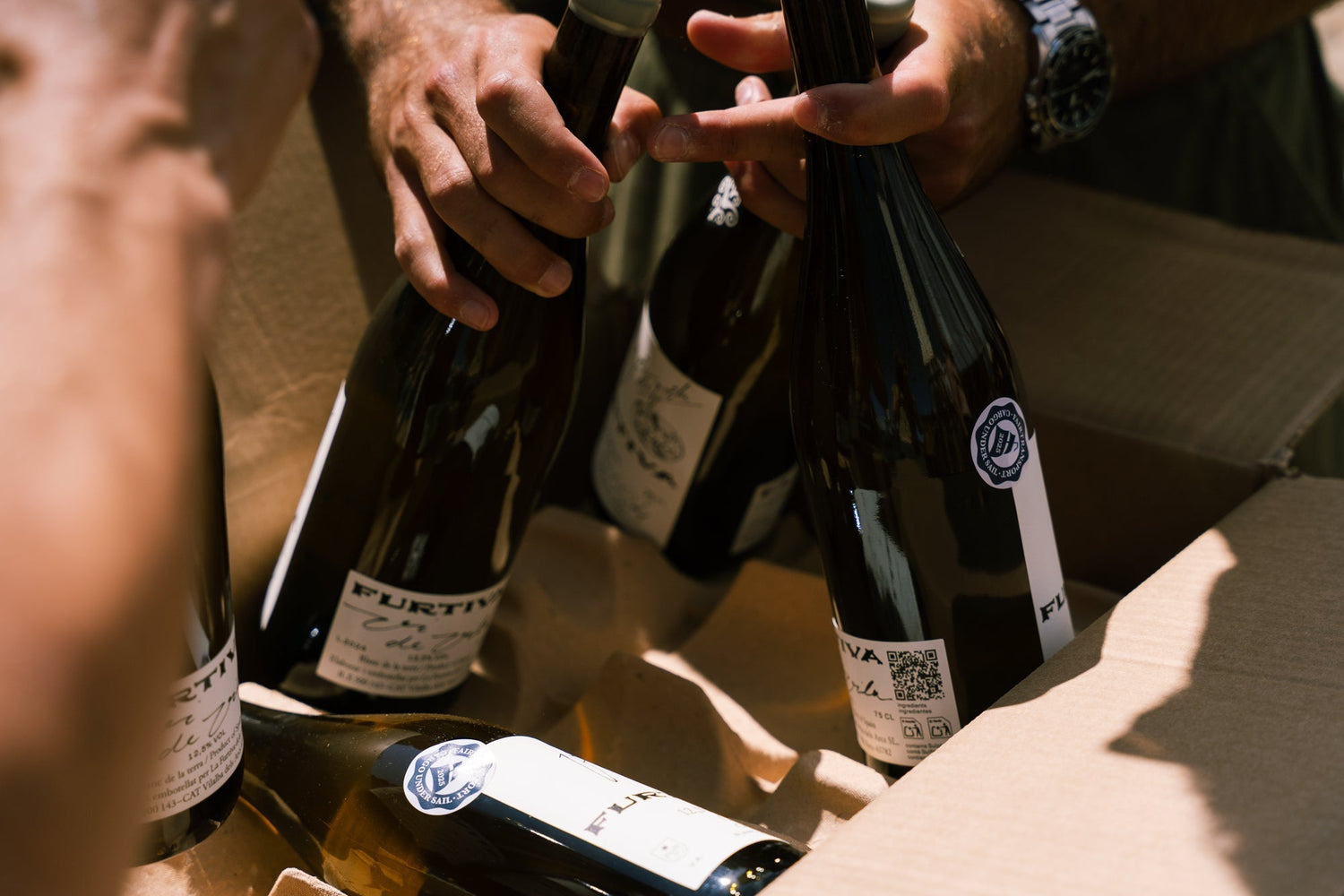Over 40,000 Bottles of Wine But You Don't Hear Much About It
Every year, more than 40,000 bottles of wine are transported from France and Spain to Denmark on board Tres Hombres, our engine-free cargo sailing ship. Unlike our more visible cargos like rum, coffee, or chocolate, this wine doesn’t carry our label. We’re simply the transport, not the brand.
Yet among the many things Tres Hombres has carried over the years including beer, clay, tea, seedlings, port, salt, stockfish, tulip bulbs, and even Spanish shoes, natural wine is one of the cargos that has stayed with us. And for good reason.
So why natural wine? And what makes it different from conventional wine?
The Lost Art of Local Wine
In the past, wine in France was often something you picked up from your local vigneron, much like buying milk directly from a nearby dairy farm. Many of these vineyards were originally planted by the Romans, and while not indigenous, they’ve become deeply rooted in the local ecosystem.
But everything changed in the mid-1800s with the arrival of phylloxera, a vine louse from North America that devastated European vineyards. In the recovery, replanting came with industrial methods, and winemaking started to shift towards volume, consistency, and efficiency.
How Conventional Wine Became a Global Commodity
Modern winemaking has been engineered for stability and standardisation. Grapes are now grown in soils stripped of life, treated with pesticides, covered in plastic, and fed water and fertilizer via drip systems. Vines are modified or selected to yield multiple harvests per year and are planted in perfect rows to be machine-harvested.
During production, sulphates are added at nearly every step, killing native yeasts and preventing spoilage. Grapes are often harvested early, meaning additives like sugar and acidity regulators must be added to “fix” the wine. Once the desired flavor is reached, more sulphates are used to halt fermentation, locking in consistency.
The result? A bottle of wine that tastes nearly identical, year after year, regardless of the weather, the land, or the people behind it.
But there’s a cost: although vineyards make up just 3% of France’s agricultural land, they account for roughly 20% of the country’s fungicide use. These farms don’t support biodiversity, nor do they provide meaningful work for many people.
What Makes Natural Wine Different?
Natural winemakers are basically trying to go as far back to the basics as possible. Always organic (though not always certified), they put up with all of the inconveniences of no additives. This means that the harvest is usually achieved with many hands that come to help and it is a festive event lasting a month or more. The Vineyard becomes a lively place with both people and nature. Grapes are picked by the bunch and only when they are ripe. They are macerated, fermented and bottled and are still “alive in the bottle”. So not only is every year different (same as our rum), but it keeps changing in the bottle. The term “a good year” actually means something again.
Why This Matters
Many people crave predictability, a wine that always tastes the same. But there is also beauty in things that can never be exactly repeated.
At Fairtransport, we believe in highlighting that kind of difference. That’s why we sail natural wine. It's not just about what’s in the bottle, it's about the story, the soil, the people, and the values behind it.
And maybe that’s what makes the wine we carry so special.
Over the years, Tres Hombres has brought back some of these French natural wines to the Netherlands and now you can try them too. Click here to see what’s available in our webshop, and let us know what you think. Can you taste the difference with regular store-bought wine?


